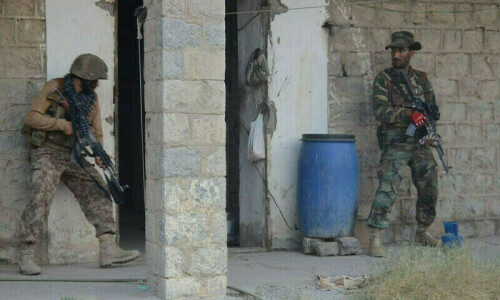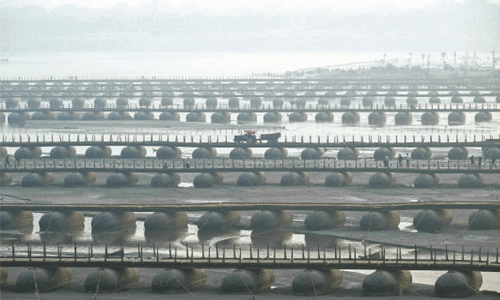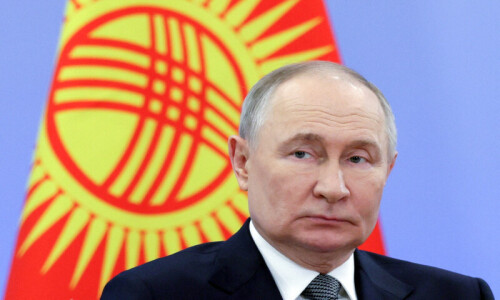ISLAMABAD: Decision makers should know that having more than one national language will not pose a threat to national security, and history shows that one language does not ensure a country will remain intact, said Punjabi writer Mushtaq Sufi.
“A narrative is being constructed for the last 70 years that there should be one national language because that is the only way the country can remain strong,” Mr Sufi said while speaking at a two-day symposium held at the Pakistan Academy of Letters (PAL) on Monday.
“Urdu was imposed as the only national language in the country, a move which invited resistance in East Pakistan from the very beginning. So that narrative is not correct historically,” he said.
Mushtaq Sufi said many countries have various official languages including Canada, Iran, Russia, Belgium, India and Afghanistan among others and that the plurality of their national languages has not posed a threat to their national security.
On the other hand, only one of 22 languages are spoken in the Arab world, where a single language has not guaranteed security, he argued.
Writers, literati gather to draft policy for government regarding the status of languages in Pakistan
“Pakistan is situated in an area where multiple languages have been spoken for centuries and scholars say this diversity is an asset. I am a Punjabi and I am not afraid of the other languages in the country. I believe that there is no alternate for any language because languages are more of a way to see the world that they are a way to communicate,” he said.
“It is unfortunate that the languages of those who helped build the country, including the Bengalis, Baloch, Sindhi and Pakhtoon, are considered a threat to the country,” he added.
Baloch writer Panah Baloch said terrorism can only be eradicated by promoting local languages which impart the message of the sufis.
“The local language is taught in Sindh which is why we can hardly find a Sindhi terrorist. Iran included Balochi in the curriculum due to which many issues have been addressed,” he said.
Pakhtun writer Noorul Amin Yousafzai said people should have the right to receive education in any language. He said five languages have been included in the curriculum in Khyber Pakhtunkhwa and that the curriculum board is working on the matter.
Educationist Prof Dr Javed Iqbal pointed out that the Khushal Khan Khattak University in KP does not have a Pashto department.
Two participants said Urdu is spoken across the country and should not be referred to as a foreign language.
“Urdu is the language of Punjab and was spoken here before Pakistan came into being. There are many dialects in Punjabi which means Punjabi cannot replace Urdu, not even in Punjab,” said a participant, Arshad Mehmood.
Writer Tariq Rehman said the ruling elite thinks adopting more languages will not be in their interests.
“These kinds of decisions are not feasible for multilingual states and that is why the problem in Bengal started,” he said.
PAL Chairman Dr Qasim Bugio said that the PPP had made many efforts for drafting a language policy and that the PML-N had included addressing the issue on its mandate. Efforts were also made in the National Assembly and the Senate to declare more languages as national languages, which could so far not be done.
“PAL therefore decided to invite literary figures to discuss the issue during a two day symposium, which is being held in connection with mother languages day, and prepare a draft policy for the government. We hope that political parties will consider the draft because it will be prepared by the academia,” he said.
On Feb 21, 1952, students of the Dhaka University had held a protest, demanding that Bangla be declared a national language of Pakistan because 56pc of the country’s population spoke the language.
The police opened fire at them during which five students were killed. Unesco declared the day the students were killed the International Day of Mother Languages, which is now observed worldwide.
Published in Dawn, February 21st, 2017














































